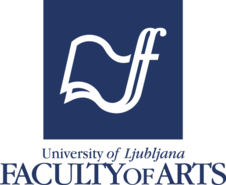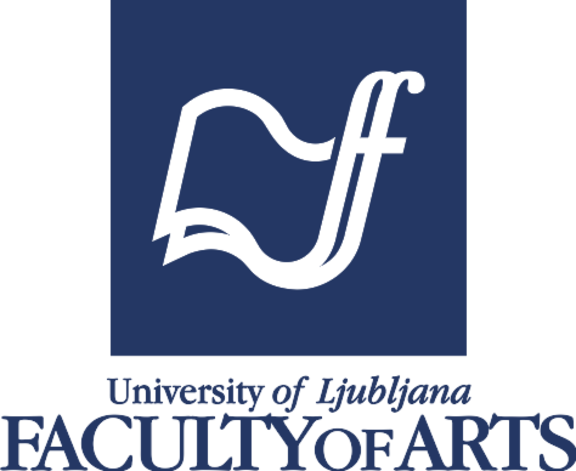Difference between revisions of "Department of Psychology, University of Ljubljana"
Dare Pejić (talk | contribs) |
|||
| (17 intermediate revisions by 8 users not shown) | |||
| Line 1: | Line 1: | ||
{{Article | {{Article | ||
| − | | status = | + | | status = |
| maintainer = Dare Pejić | | maintainer = Dare Pejić | ||
}} | }} | ||
| Line 6: | Line 6: | ||
| name = Department of Psychology, University of Ljubljana | | name = Department of Psychology, University of Ljubljana | ||
| local name = Oddelek za psihologijo, Univerza v Ljubljani | | local name = Oddelek za psihologijo, Univerza v Ljubljani | ||
| + | | logo = Faculty of Arts University of Ljubljana (logo).svg | ||
| street = Aškerčeva 2 | | street = Aškerčeva 2 | ||
| town = SI-1000 Ljubljana | | town = SI-1000 Ljubljana | ||
| telephone = 386 (0) 1 241 1150 | | telephone = 386 (0) 1 241 1150 | ||
| fax = 386 (0) 1 425 9301 | | fax = 386 (0) 1 425 9301 | ||
| − | | website = | + | | website = https://www.ff.uni-lj.si/en/studij/oddelki/oddelek-za-psihologijo |
| managed by = Faculty of Arts, University of Ljubljana | | managed by = Faculty of Arts, University of Ljubljana | ||
| contacts = {{Contact | | contacts = {{Contact | ||
| − | | name = | + | | name = Darja Kobal Grum |
| role = Head of Department | | role = Head of Department | ||
| − | | email = | + | | telephone = 386 (0) 1 241 1151 |
| + | | email = darja.kobal@ff.uni-lj.si | ||
}}{{Contact | }}{{Contact | ||
| − | | name = | + | | name = Nives Kolarič |
| role = Secretary | | role = Secretary | ||
| telephone = 386 (0)1 241 1150 | | telephone = 386 (0)1 241 1150 | ||
| − | | email = | + | | email = nives.kolaric@ff.uni-lj.si |
| − | |||
}} | }} | ||
| + | |accounts= | ||
| + | https://www.facebook.com/PsihologijaUL/ | ||
}} | }} | ||
| + | |||
{{Teaser| | {{Teaser| | ||
| − | The Department of Psychology at the [[Faculty of Arts, University of Ljubljana]] has a respectable history. On the university level it has been taught since 1919, the year when University of Ljubljana was founded. Today, the | + | The [[Department of Psychology, University of Ljubljana|Department of Psychology]] at the [[Faculty of Arts, University of Ljubljana]] has a respectable history. On the university level it has been taught since 1919, the year when the University of Ljubljana was founded. Today, the department offers undergraduate, taught postgraduate and guided research programmes in Psychology. 7 of the undergraduate courses are taught in English. |
}} | }} | ||
| + | == Background == | ||
| + | Psychology has been taught at the Faculty of Arts since 1919 when the first teacher, philosopher [[Franc Veber]], was the first to give lectures. [[Karel Ozvald]] from the Department of Pedagogy was the second but they both had little or no influence on the establishment of the independent Department of Psychology. | ||
| − | + | On the initiative of [[Mihajlo Rostohar]], a professor from Charles University in Prague, the department was constituted after the Second World War in [[established::1950]]. The same year, on Rostohar's initiative the Institute of Psychology was established. His main field of study was general psychology, child psychology, social psychology, psychology of disability and history of psychology. Rostohar became the first Head of Department. | |
| + | In the first decade, the department went through several changes. It also introduced new chairs: general psychology, developmental psychology, educational psychology, clinical psychology, industrial psychology, statistics and psychometrics. The department was reorganised, the two-subject programme was cancelled and only one-subject study programme was possible. | ||
| − | + | In the 1980s, the department started to organise the postgraduate programme and in cooperation with the Centro Studi Universitari Internacionali (CSUI) from Lugano, Switzerland, introduced the Master's programme. | |
| − | |||
| − | In | + | == Today == |
| + | In 2010 the Department of Psychology held seven chairs: general psychology, psychological methodology, developmental psychology, social psychology, clinical psychology, educational psychology and psychology of work. It currently offers 7 undergraduate courses taught in English. Besides full-time and part-time undergraduate study, students can obtain both Master's and doctoral degrees (with the latter acquiring the title Doctor of Psychological Science). Students can follow four PhD study tracks: experimental psychology, developmental studies in psychology, psychology of personality, applicative psychological studies. Students are active in the student association and publish their own student journal ''Panika'' [Panic]. | ||
| − | + | == International cooperation and exchange == | |
| + | The department is active in international cooperation. It has several partnerships with regional universities and also within the ERASMUS/SOCRATES student exchange network in Austria (Alpen-Adria Universitaet, Klagenfurt), Belgium (Lessius Hogeschool), France (Universite de Reims Champagne-Ardenne), Hungary (University of Pecs), Germany (Freie Universitaet Berlin), Netherlands (University of Maastricht), Norway (University of Bergen), Portugal (ISLA), Slovakia (Comenius University, Bratislava), Spain (University of Granada, University of Laguna, University of Salamanca, Autonomous University of Barcelona, University of Jaen), Switzerland (University of Basel). | ||
| + | == See also == | ||
| + | *[[Department of Psychology Library, University of Ljubljana]] | ||
| + | *[[Faculty of Arts, University of Ljubljana]] | ||
| + | *[[University of Ljubljana]] | ||
| + | == External links == | ||
| + | * [https://www.ff.uni-lj.si/en/studij/oddelki/oddelek-za-psihologijo Department of Psychology on Faculty of Arts website] | ||
| + | * [http://psy.ff.uni-lj.si/en/ Department of Psychology, University of Ljubljana old website] | ||
| + | * [http://www2.arnes.si/~dpsih/main.htm| Slovene Psychological Association] (in Slovenian and English) | ||
| − | |||
| − | |||
| − | + | [[Category:Education]] | |
| − | + | [[Category:Research]] | |
| − | + | [[Category:Academies and faculties]] | |
| − | + | [[Category:Education_and_research]] | |
| − | + | [[Category:Education_and_Research]] | |
| − | |||
| − | |||
Latest revision as of 17:39, 22 February 2021
Background
Psychology has been taught at the Faculty of Arts since 1919 when the first teacher, philosopher Franc Veber, was the first to give lectures. Karel Ozvald from the Department of Pedagogy was the second but they both had little or no influence on the establishment of the independent Department of Psychology.
On the initiative of Mihajlo Rostohar, a professor from Charles University in Prague, the department was constituted after the Second World War in 1950. The same year, on Rostohar's initiative the Institute of Psychology was established. His main field of study was general psychology, child psychology, social psychology, psychology of disability and history of psychology. Rostohar became the first Head of Department.
In the first decade, the department went through several changes. It also introduced new chairs: general psychology, developmental psychology, educational psychology, clinical psychology, industrial psychology, statistics and psychometrics. The department was reorganised, the two-subject programme was cancelled and only one-subject study programme was possible.
In the 1980s, the department started to organise the postgraduate programme and in cooperation with the Centro Studi Universitari Internacionali (CSUI) from Lugano, Switzerland, introduced the Master's programme.
Today
In 2010 the Department of Psychology held seven chairs: general psychology, psychological methodology, developmental psychology, social psychology, clinical psychology, educational psychology and psychology of work. It currently offers 7 undergraduate courses taught in English. Besides full-time and part-time undergraduate study, students can obtain both Master's and doctoral degrees (with the latter acquiring the title Doctor of Psychological Science). Students can follow four PhD study tracks: experimental psychology, developmental studies in psychology, psychology of personality, applicative psychological studies. Students are active in the student association and publish their own student journal Panika [Panic].
International cooperation and exchange
The department is active in international cooperation. It has several partnerships with regional universities and also within the ERASMUS/SOCRATES student exchange network in Austria (Alpen-Adria Universitaet, Klagenfurt), Belgium (Lessius Hogeschool), France (Universite de Reims Champagne-Ardenne), Hungary (University of Pecs), Germany (Freie Universitaet Berlin), Netherlands (University of Maastricht), Norway (University of Bergen), Portugal (ISLA), Slovakia (Comenius University, Bratislava), Spain (University of Granada, University of Laguna, University of Salamanca, Autonomous University of Barcelona, University of Jaen), Switzerland (University of Basel).
See also
- Department of Psychology Library, University of Ljubljana
- Faculty of Arts, University of Ljubljana
- University of Ljubljana




